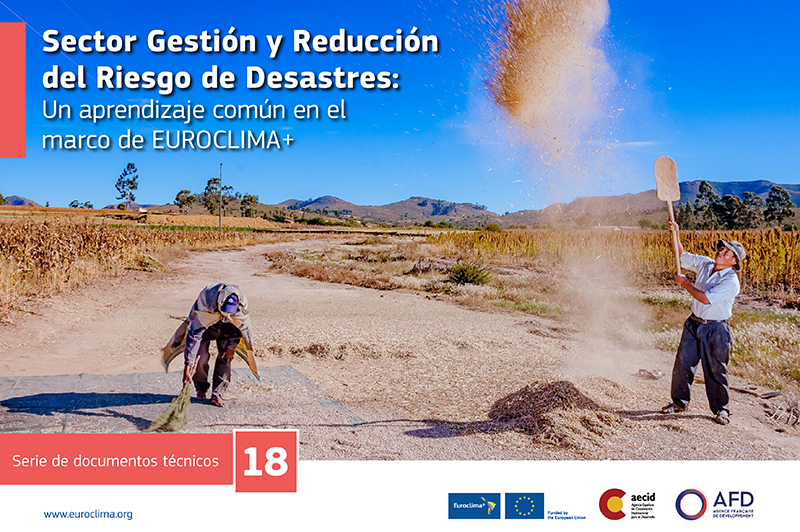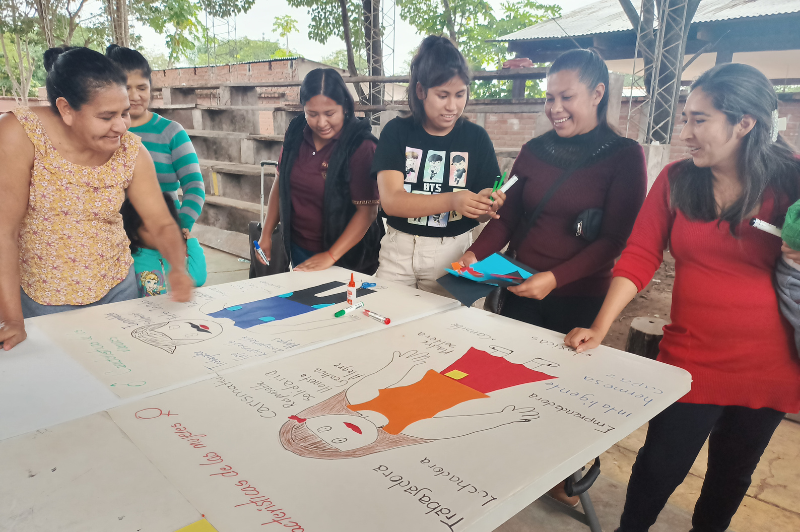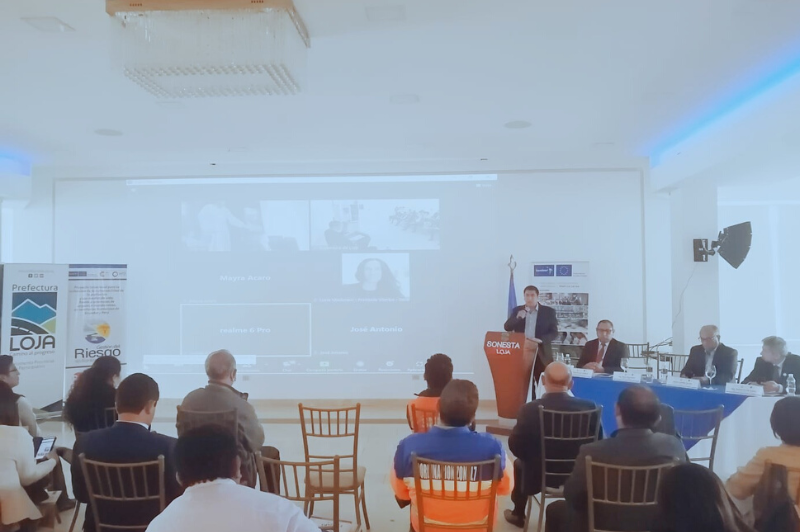Producers from Bolivia and Peru visited communities in Cusco, Peru, learning more about drought risk reduction measures.
November 8, 2019. Bolivia and Peru. Through the European Union’s EUROCLIMA+ programme and under the framework of the Risk Management component implemented by the Spanish Agency for International Development Cooperation (AECID) and the French Development Agency (AFD), the project "Information, governance and action for drought risk reduction in Peru and Bolivia in a context of climate change", promotes measures that help with disaster risk reduction.
Recently producers from Bolivia (Sica Sica and Calacoto) and Peru (Ilave, Mañazo, Taraco and Pusi) visited communities in Cusco, Peru, to strengthen learning processes on drought risk reduction measures, including sprinkler irrigation, artisanal construction of water ponds and silage fodder, among others. These actions aim to strengthen producers in the implementation of measures for water harvesting, drought prevention and agricultural risks.
In the community of Kuturkanki in Cusco they learned from the experience of Samuel Huarca who explained the water harvesting process, developed under the framework of the Integrated Agricultural Risk Management - GIRA project implemented by Helvetas Peru. Huarca pointed out the importance of "not moving subsoils because the soil loses impermeability and allows seepage," explaining that these measures promote greater availability of water for agriculture and livestock production.
Marina Salas shared her knowledge about planning actions to reduce risks, explaining the talking map tool that enabled familiarisation with the participants and the changes that the family achieved. Salas highlighted the organisation within the family and with the community as a mechanism that allows improving the adaptive capacity to changes in climate or its variability.
In the Livitaca district of Cusco, Hemitaño Callahua shared the experience of sprinkler irrigation with the use of the artisanal water pond, which allows his family to have this resource for their plots. Callahua presented the evidence from the production of drought-resistant Andean tubers. Ramiro Roca said "when the field dries up and I don't have any fodder for the cattle, I use silage to ensure the feeding of the animals. In this context, silage practices make it possible to preserve fodder for longer and to have this resource available during times of scarcity.
About the projects of the Disaster risk management and reduction component: droughts and floods
A total of seven projects will be implemented through the Risk Management component of the EUROCLIMA+ programme. For more information on each project visit this link: https://www.euroclima.org/en/risk-management
About EUROCLIMA+
EUROCLIMA+ is a programme funded by the European Union to promote environmentally sustainable and climate-resilient development in 18 Latin American countries, particularly for the benefit of the most vulnerable populations. The Programme is implemented under the synergistic work of seven agencies: Spanish Agency for International Development Cooperation (AECID), French Development Agency (AFD), Economic Commission for Latin America and the Caribbean (ECLAC), Expertise France (EF), International and Ibero-American Foundation for Administration and Public Policies (FIIAPP), the German Society for International Cooperation (GIZ), and UN Environment.
Contacts
For more information about EUROCLIMA+, contact Alexandra Cortés:
This email address is being protected from spambots. You need JavaScript enabled to view it.
For information about the EUROCLIMA+ Risk Management component, write to This email address is being protected from spambots. You need JavaScript enabled to view it.



